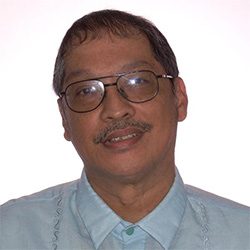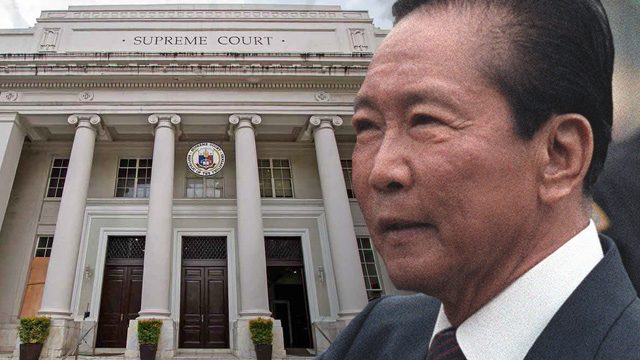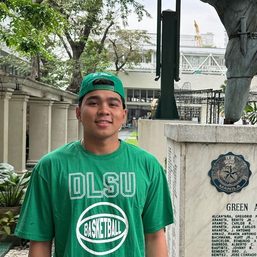SUMMARY
This is AI generated summarization, which may have errors. For context, always refer to the full article.

Flashback to 27 years ago: Marcos vs. Manglapus, G.R. No. 88211, September 15, 1989, 177 SCRA 668.
It is the Philippine Supreme Court (SC) decision that law students are taught and recite on regarding the President’s “residual unstated powers.” On this basis, the SC en banc upheld President Corazon Aquino’s decision barring former President Ferdinand Marcos from getting his wish to return from his Hawaii exile to the country to die.
The right to return to one’s country then is certainly much more fundamental than the Marcos issue now at hand in the SC regarding his entitlement to be buried in the national cemetery of heroes, the Libingan ng mga Bayani. (READ: SC: Verdict on Marcos burial on hold until November 8)
The full 15-member SC vote during that period was a close 8-7. The majority 8 were the following:
- Justice Irene Cortes (the ponente or decision writer)
- Chief Justice Marcelo Fernan (with a separate concurring opinion)
- Justice Andres Narvasa
- Justice Ameurfina Melencio-Herrera
- Justice Emilio Gancayco
- Justice Carolina Griño-Aquino
- Justice Leo Medialdea
- Justice Florenz Regalado
The minority 7 were the following:
- Justice Hugo Gutierrez Jr
- Justice Isagani Cruz
- Justice Teodoro Padilla
- Justice Abraham Sarmiento
- Justice Edgardo Paras
- Justice Abdulwahid Bidin
- Justice Florentino Feliciano
Except for Bidin and Feliciano, the other dissenters issued separate dissenting opinions.
Unanimous on Marcos’ role
While the vote was divided, turning as it did on the balance between presidential power to act on “a serious threat to national interest and welfare” on one hand and an individual’s right to return to his country on the other hand, the decision and most of the separate opinions – whether concurring or dissenting – were remarkably unanimous in their negative assessments of the role of Marcos in recent Philippine history, even by the dissenting Justices who voted to uphold his right to return to the country.
To be clear, these negative assessments of Marcos were not the ratio decidendi (legal reasoning basis) for the decision (and we are not going back here to the core constitutional argumentation therein). Those negative assessments of Marcos can be considered mere obiter dicta or side commentaries or opinions that may be relevant to but are not the actual basis, factual and legal, for resolving the constitutional issue.
Those negative assessments of Marcos may however be more relevant to the Marcos Libingan burial issue at hand, pending in the SC, such as along the lines of the petition therein of martial law victim Etta Rosales.
The Marcos vs. Manglapus Decision itself, to start with, contains a “class by itself” caveat while summarizing that negative assessment of Marcos, thus: “This case is unique. It should not create a precedent, the case of a dictator forced out of office and into exile after causing twenty years of political, economic and social havoc in the country and who within the short space of three years seeks to return, is in a class by itself.” But maybe no longer.
The ponente Justice Cortes goes on to say: “We cannot also lose sight of the fact that the country is only now beginning to recover from the hardships brought about by the plunder of the economy attributed to the Marcoses and their close associates and relatives, many of whom are still here in the Philippines in a position to destabilize the country, while the Government has barely scratched the surface, so to speak, in its efforts to recover the enormous wealth stashed away by the Marcoses in foreign jurisdictions. Then, We cannot ignore the continually increasing burden imposed on the economy by the excessive foreign borrowing during the Marcos regime, which stifles and stagnates development and is one of the root causes of widespread poverty and all its attendant ills. The resulting precarious state of our economy is of common knowledge and is easily within the ambit of judicial notice.” “Of judicial notice,” meaning recognized as fact without need of further proof.
Chief Justice Fernan had this to say in his separate concurring opinion: “… It must be remembered that the ouster of the Marcoses from the Philippines came about as an unexpected, but certainly welcomed, result of the unprecedented ‘people’s power” revolution. Millions of our people braved military tanks and firepower, kept vigil, prayed, and in countless manner and ways contributed time, effort and money to put an end to an evidently untenable claim to power of a dictator. The removal of the Marcoses from the Philippines was a moral victory for the Filipino people; and the installation of the present administration, a realization of and obedience to the people’s will.”

Dissenting opinions
Senior dissenting Justice Gutierrez, Jr, for his part, puts it in terms of human rights for all: “…It was precisely the banning by Mr. Marcos of the right to travel by Senators Benigno Aquino, Jr., Jovito Salonga, and scores of other ‘undesirables’ and ‘threats to national security’ during that unfortunate period which led the framers of our present Constitution not only to re-enact but to strengthen the declaration of this right. Media often asks, ‘what else is new?’ I submit that we now have a freedom loving and humane regime. I regret that the Court’s decision in this case sets back the gains that our country has achieved in terms of human rights, especially human rights for those whom we do not like or those who are against us.” Might we hear that again not being set back these days: “the gains that our country has achieved in terms of human rights…”
Dissenting Justice Cruz, a renowned constitutionalist and libertarian, said: “It is my belief that the petitioner, as a citizen of the Philippines, is entitled to return to and live — and die — in his own country. I say this with a heavy heart but say it nonetheless. That conviction is not diminished one whit simply because many believe Marcos to be beneath contempt and undeserving of the very liberties he flouted when he was the absolute ruler of this land.”
Dissenting Justice Sarmiento, whose son and himself were martial victims, was the most gallant to his tormentor, a despot nonetheless: “The power of the President, so my brethren declaim, ‘calls for the exercise of the President’s power as protector of peace.’…. This is the self-same falsehood Marcos foisted on the Filipino people to justify the authoritarian rule. It also means that we are no better than he was…. . I am for Marcos’ return not because I have a score to settle with him. [My son] Ditto’s death or my arrest are scores that can not be settled….I feel the ex-President’s death abroad (presented in the dailies as ‘imminent’) would leave him ‘unpunished’ for his crimes to country and countrymen. If punishment is due, let this leadership inflict it. But let him stand trial and accord him due process…. Now that the shoe is on the other foot, let no more of human rights violations be repeated against any one, friend or foe. In a democratic framework, there is no such thing as getting even.” Wow!
Finally, for whatever it may be worth for the Marcos Libingan burial issue at hand, dissenting Justice Paras had this practical suggestion then: “It is therefore clear to me, all other opinions to the contrary notwithstanding, that the former President should be allowed to return to our country under the conditions that he and the members of his family be under house arrest in his hometown in Ilocos Norte, and should President Marcos or any member of his family die, the body should not be taken out of the municipality of confinement and should be buried within ten (10) days from date.”
As we said early on, the above quoted passages from the SC Decision in Marcos vs. Manglapus are mere obiter dicta, and were not decisive for that case.
But as judicial pronouncements in a SC decision that is already “part of the legal system of the Philippines,” what value if any do they have for the Marcos Libingan burial issue at hand pending in the SC?
Some judicial notice had already been given 27 or “one score and seven years” ago to “the case of a dictator forced out of office and into exile after causing twenty years of political, economic and social havoc in the country.”
Has change come after 27 years to that historical verdict of sorts? We do not think so. The historical verdict should stand. What perhaps remains in the Marcos Libingan burial case in the SC is to place that historical verdict in a constitutional frame. There appears to be sufficient constitutional grounds to do so, starting with the history itself of that Constitution. May law and history collaborate in its resolution. – Rappler.com
Soliman M. Santos Jr is presently the Judge of the Regional Trial Court (RTC) Branch 61 in Naga City. He is the author of a number of books, including Justice of the Peace: The Work of a First-Level Court Judge in the Rinconada District of Camarines Sur (Quezon City: Central Books, 2015). He has been a political activist and martial law detainee; a long-time human rights and international humanitarian lawyer; legislative consultant and legal scholar; peace advocate, researcher and writer.
Add a comment
How does this make you feel?





There are no comments yet. Add your comment to start the conversation.